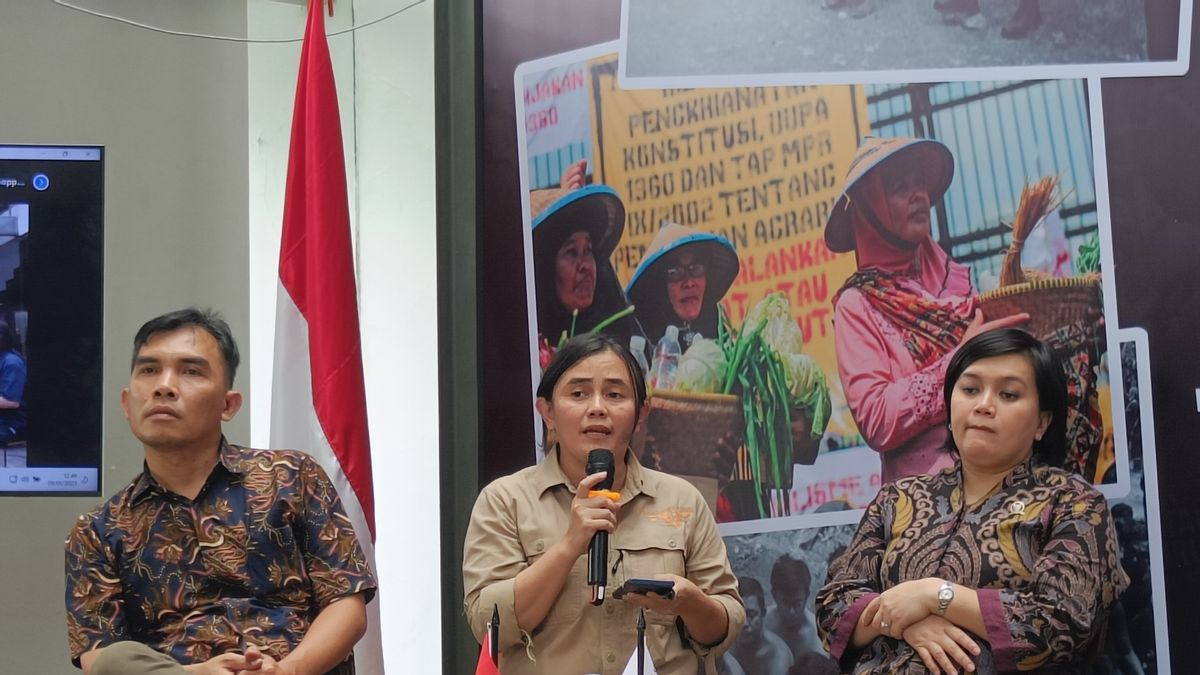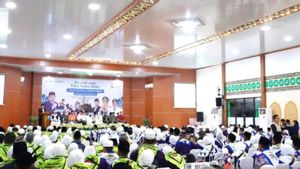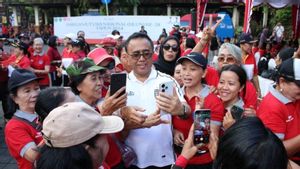
JAKARTA - Problems regarding agrarian conflicts from year to year continue to increase. The Agrarian Reform Consortium (KPA) said that the most agrarian conflicts occurred in the plantation sector throughout 2022.
KPA noted that at least 99 cases were contributed by the plantation sector with a conflict area of 377,197 hectares and affected by 141,001 families.
"Of the total 99 conflicts that occurred in the plantation sector, 80 occurred in oil palm plantations," said Secretary General of the Agrarian Reform Consortium Dewi Sartika in a late 2022 note with the theme 'Agrarian Conflict Bara: Unconnected PTPN, Increasing Criminalization' in the Kemang area, South Jakarta, Monday, January 9.
Then, said Dewi, the plantation sector with various types of tea, coconut, cocoa, and rubber contributed four conflict eruptions each.
"Furthermore, there will be one conflict caused by coffee and sugar cane plantations," he said.
According to Dewi, the high eruption of agrarian conflicts in the plantation sector and the palm oil business is a classic problem that has not been resolved by the government.
"The main obstacle is because the Twitter business is still the government's golden child in boosting the national economy," he said.
The second position that contributes the most conflicts occurs in the infrastructure development sector.
Next is the dominance of the largest contributor to agrarian conflicts, namely from the government's leading projects sector.
Dewi mentioned one example related to this, namely nickel mining itself which is closely related to the Indonesian government's plan to dominate the global electricity market.
"Including the development of domestic industries, such as the development of the National Capital City (IKN) area, which is planned to be mostly supported by electricity-based transportation," he added.
The English, Chinese, Japanese, Arabic, and French versions are automatically generated by the AI. So there may still be inaccuracies in translating, please always see Indonesian as our main language. (system supported by DigitalSiber.id)







